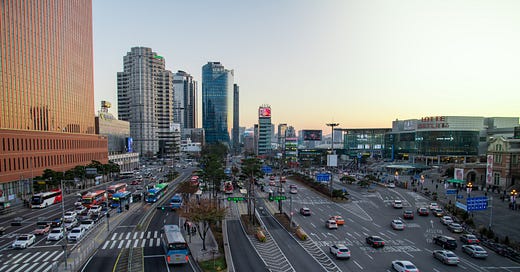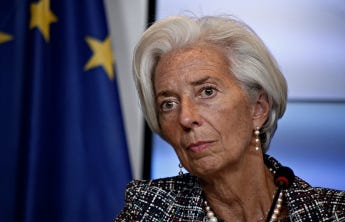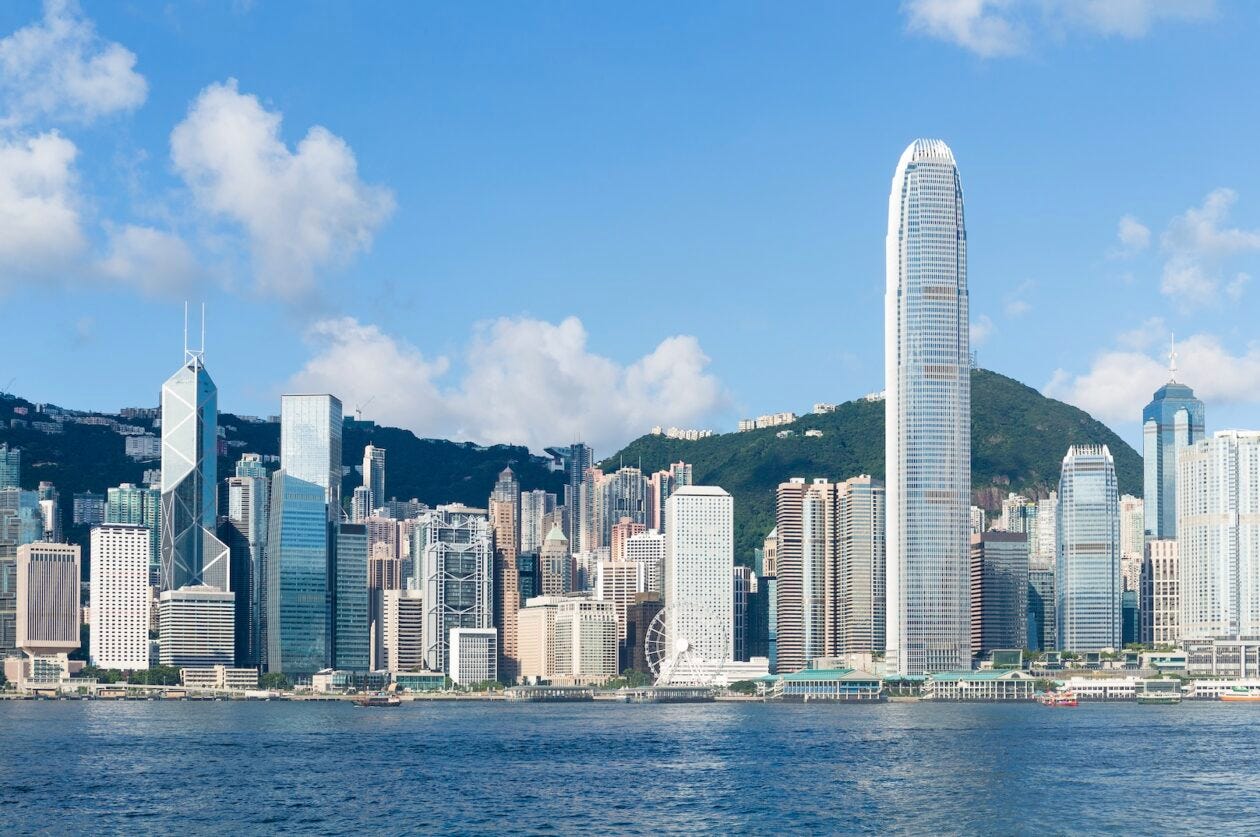Emerging Markets Monitor - January 20
S. Korea Seeks 'Developed Market' Title, EM Sizzles in 2023, Peru Unrest Threatens Copper, Central Bankers 'Stay the Course' on Rates, Hong Kong Crypto Hit by FTX
The Top 5 Stories Shaping Emerging Markets from Global Media - January 20
South Korea Eases Regulations to Attract Foreign Investors
Financial Times
“South Korea is easing regulation of the country’s financial markets in an effort to lure more foreign investors as it seeks to fulfill its long-held goal of graduating to MSCI’s developed markets status.”
“The government will scrap complex registration requirements for foreign investors to trade Korean stocks. It will also allow offerings of security tokens — digital forms of stocks and bonds — in a bid to advance the digital asset market.”
“By winning the upgraded status and seeing its stocks included in the MSCI world index, the global stock benchmark, South Korea hopes to attract more long-term foreign fund flows into the local market.”
“…South Korea has been classified by the index maker MSCI as an emerging market, mainly due to the country’s refusal to allow offshore trading in the Korean won and its convoluted registration process for foreign investors. The government is also trying to improve South Korea’s bond market environment for foreign investors in order to be included in the World Government Bond Index.”
“FTSE Russell, a global index provider, added South Korea to a watch list for possible inclusion in the index in September, following the country’s decision to cut taxes on foreign bond investment.”
“Experts welcomed the move to deregulate, saying that it would increase foreign access to the domestic capital markets. But they cautioned that the world’s 10th-largest economy had to allow offshore trading in the won in order for the country to win the MSCI upgrade.” The FT reports.
Emerging Markets Rise as Biggest Star of 2023 So Far
Bloomberg
“Emerging markets are back in the spotlight, emerging as 2023’s biggest star so far after a decade in the shadows. Rock bottom arrived in October last year (not coincidentally about the time that Treasury yields and the dollar were peaking). Since hitting a nearly three-year low, the MSCI Emerging Markets index is up more than 30%.”
“There are many reasons for the resurgence, led by the weakening dollar and the reopening of China as discussed last week.”
“…The dollar has depreciated 7% since its high in October, pushing EM assets higher. Historically, the two have had an inverse relationship. Year-to-date, EM stocks and foreign exchange have enjoyed a strong run, though Goldman Sachs Group Inc.’s Caesar Maasry and Jolene Zhong point out that local credit spreads and rates have lagged the moves compared to developed-market peers. It’s the differential in economic growth, however, that suggests EM stocks have further to go.”
“But while EM equities understandably dominate attention, emerging-market debt tends to be ignored. Few asset classes are more drastically out of favor, and last year saw record outflows from EM debt portfolios. Technical conditions should be more supportive in 2023, according to Marcelo Assalin, head of William Blair’s emerging markets debt team.” John Authers writes.
Peru Unrest Threatens to Choke Off Almost 2% of Global Copper Supply
Mining.com
“Protests in Peru are threatening to choke off access to almost $4 billion worth of copper just as China’s emergence from Covid lockdowns promises to boost demand.”
“Peru’s third-largest copper mine, Las Bambas, hasn’t dispatched copper concentrate since Jan. 3 due to security concerns. Glencore Plc’s Antapaccay is also facing restrictions. The mines, which share the same highway access to ports, together account for nearly 2% of the world’s copper output.”
“Unrest has rattled Peru since the ouster and arrest of former President Pedro Castillo, upending commodity supply chains from metals to organic coffee. The disruption comes at a particularly precarious moment for copper markets. Inventories stand at historically low levels while miners warn demand for the world’s most critical metal is poised to skyrocket with the growing electrification of vehicles.”
“Base metal prices have been on a bull run since New Year’s after China, a top consumer, abruptly abandoned Covid-19 controls. Prices settled Wednesday at a seven-month high on the London Metal Exchange. Goldman Sachs Group Inc. predicts ongoing deficits and forecast a record price of $11,000 a ton within 12 months.”
“Las Bambas, whose operator MMG Ltd. is controlled by state-owned China Minmetals Corp., has been the target of multiple demonstrations since it opened in 2016 as indigenous groups seek greater compensation for land and roads used by mining companies.” Mining.com reports.
Central Bankers Pledge to ‘Stay the Course’ on Interest Rates
Financial Times
“Investors have been put on notice that central bankers on both sides of the Atlantic will ‘stay the course’ on interest rate increases to cool down their economies and tame high inflation.”
“European Central Bank president Christine Lagarde warned that further big rate rises lay ahead in comments later echoed by a top official at the US Federal Reserve. ‘We shall stay the course until . . . we can return inflation to 2 per cent in a timely manner,’ the ECB president said in a panel discussion during the World Economic Forum.”
“Lael Brainard, the vice-chair of the Fed, signalled that the US central bank also had more to do to get inflation closer to its 2 per cent target, despite signs that consumer spending is starting to ebb, the labour market is cooling and price pressures have eased. ‘Inflation is high, and it will take time and resolve to get it back down to 2 per cent. We are determined to stay the course,’ Brainard said at an event hosted by the University of Chicago’s Booth School of Business.”
“The Fed and the ECB have rapidly raised interest rates since last year to curb inflation they initially dismissed as ‘transitory’. The two central banks are assessing how much further to squeeze their economies, which will be complicated by the delayed effects of tightening on the economy.” The FT reports.
Hong Kong Crypto Players Battered By FTX Fall-Out
South China Morning Post
“As bitcoin and ether prices soared this week, damages from the cryptocurrency market meltdown triggered by the collapse of FTX two months ago have continued to surface, particularly among Hong Kong exchanges as the city seeks to become a hub for virtual assets.”
“OSL told the Post by email on Wednesday that it is planning to reduce operating expenses by approximately 33 per cent ‘in response to current market conditions’, a process that includes a headcount reduction, without disclosing the number of employees that will be let go.”
“OSL is a subsidiary of Hong Kong-listed BC Technology Group, which in December 2020 received the city’s first license to operate a virtual asset trading platform for professional investors.”
“The company joins trading firm Amber Group, founded in Hong Kong and now headquartered in Singapore, in seeking to control spending…Amber was one of just four Web3 companies with funding rounds above US$100 million last quarter, according to Crunchbase data…”
“In more bad news for the city’s crypto industry this week, US authorities announced on Wednesday that they had arrested the majority owner and co-founder of Hong Kong-registered cryptocurrency exchange Bitzlato, which allegedly processed US$700 million in illicit funds in dealings with the dark web marketplace Hydra Market.”
The co-founder, Anatoly Legkodymov, is a 40-year-old Russian who helped run the company from just across the mainland China border in Shenzhen, US authorities said. Legkodymov was arrested in Miami earlier this week.” Xinmei Shen reports.
"Raise your words, not voice. It is rain that grows flowers, not thunder." - Rumi







